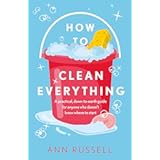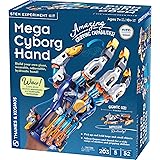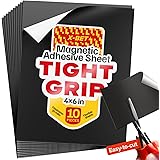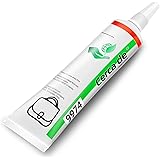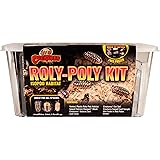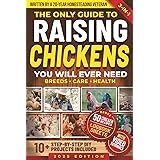Unlock the Power of Effective DIY Cleaners for a Spotless Home
Maintaining a clean and fresh home does not always require an arsenal of expensive, chemical-laden products. Indeed, the secret to a sparkling living space often lies in simple, versatile, and budget-friendly solutions you can craft right in your kitchen. The accompanying video above demonstrates two incredibly effective DIY cleaning mixes that are consistently trusted for their proven results. These homemade cleaning solutions offer a practical approach to tackling common household grime, cutting through grease, and leaving surfaces impeccably clean.
By understanding the core ingredients and their functions, you can empower yourself to create powerful, tailored cleaners for almost any task. These two essential DIY cleaners will not only save you money but also provide peace of mind knowing exactly what ingredients you are using in your home. Let’s delve deeper into how these mixes work and where they shine best in your cleaning routine.
Essential Ingredients for Your Homemade Cleaning Solutions
Before you begin mixing, gathering the right components is crucial. These two homemade cleaning solutions rely on everyday items that are readily available and affordable. White vinegar, known for its acidic properties, forms the backbone of our first cleaner, offering a powerful yet non-abrasive action. Isopropyl alcohol (specifically 70% concentration) serves as the primary agent in our second mix, providing fast-drying and excellent solvent capabilities.
To enhance the effectiveness of both mixes, a small amount of Dawn dish soap is included. This common household item acts as a surfactant, significantly improving the cleaning power by helping the solution adhere to and break down dirt and grease. Finally, water plays an important role in diluting these potent ingredients, ensuring they are safe for various surfaces while also reducing their strong natural scents. Having these four simple ingredients on hand is your first step towards a cleaner home.
The Versatile DIY Vinegar Cleaning Mix
The first powerhouse in your DIY cleaning arsenal is a simple yet incredibly effective vinegar-based mix. This general-purpose cleaner has earned its reputation for tackling a wide range of household messes with ease. It is particularly valued for its natural ability to cut through tough grease and stubborn grime, making it a staple for many cleaning enthusiasts.
Crafting Your Vinegar Mix
Creating this solution is remarkably straightforward. You will need one cup of white vinegar, one cup of water, and approximately one teaspoon of Dawn dish soap. Combine these ingredients in a spray bottle, ensuring it has a secure cap for shaking. A few vigorous shakes will thoroughly mix the components, preparing your new cleaner for immediate use. This simple ratio ensures a balanced solution that is both effective and gentle.
Why This DIY Cleaner Stands Out
The effectiveness of this DIY vinegar mix stems from the synergistic action of its ingredients. Vinegar, being acidic, actively works to break down mineral deposits, soap scum, and greasy residues. Imagine if you spilled a greasy sauce on your countertop; the vinegar’s acidity would begin to dissolve that oil, making it easier to wipe away. Furthermore, the small addition of Dawn dish soap acts as a surfactant, which means it reduces the surface tension of water, allowing the cleaning solution to spread more easily and penetrate grime more effectively. This soap helps the solution to cling to dirt and lift it away.
Moreover, the dilution with water serves a dual purpose. Firstly, it reduces the strength of the vinegar, preventing any potential damage to delicate surfaces. Secondly, it significantly mitigates the strong scent of vinegar, which, as the video highlights, can be a concern for many. As the solution dries, the vinegar scent dissipates entirely, leaving behind a neutral, clean smell, rather than that of pickles. This combination of acidity, surfactant action, and appropriate dilution makes for a highly efficient and pleasant cleaning experience.
Optimal Uses for Your Vinegar Cleaner
This general-purpose cleaner truly shines in various areas of your home. It is an excellent choice for surfaces in your kitchen, effortlessly removing food splatters and everyday grease. Consequently, it also performs exceptionally well in bathrooms, where it can tackle soap scum, hard water stains, and general dirt on tiles and fixtures. For instance, consider those pesky mineral deposits that accumulate on glass shower doors; the vinegar mix excels at breaking down these unsightly build-ups, restoring clarity and shine.
In addition to its cleaning capabilities, vinegar is a fantastic deodorizer. It neutralizes odors rather than merely masking them. Imagine having a lingering smell on your sofa cushions after a spill; a light mist of the vinegar mix, allowed to dry, can effectively eliminate the unpleasant odor by breaking down the molecules responsible for the smell. It’s a natural and powerful way to refresh fabrics and surfaces around your home.
Surfaces to Avoid with Vinegar Mix
Despite its many benefits, there are specific surfaces where the DIY vinegar mix should not be used due to its acidic nature. Firstly, avoid using it on natural stone countertops, such as granite or marble. The acid in vinegar can etch and dull these porous materials over time, leading to permanent damage and a hazy appearance that cannot be easily repaired. It is crucial to respect the delicate composition of these stones.
Secondly, steer clear of using the vinegar mix on sealed wood floors. The acidity can gradually break down the protective sealant or finish on the wood, leaving it vulnerable to moisture damage and dullness. Over time, this can strip away the floor’s luster and even compromise the wood itself. Therefore, it is always wise to be aware of these limitations to protect your home’s valuable surfaces.
The Gentle yet Potent DIY Isopropyl Alcohol Cleaning Mix
For those surfaces that are sensitive to acid or require a streak-free, fast-drying finish, our second DIY cleaner, featuring isopropyl alcohol, is the perfect solution. This mix offers a gentler approach without compromising on cleaning power, making it a valuable addition to your cleaning kit, especially for specific delicate tasks. It provides a reliable alternative where the vinegar mix might not be suitable.
Mixing Your Isopropyl Alcohol Solution
Preparing this cleaning solution is just as simple as the vinegar mix. You will require one cup of water, one cup of 70% isopropyl alcohol, and, once again, approximately one teaspoon of Dawn dish soap. Combine these ingredients in a spray bottle, shaking well to ensure thorough mixing. This ratio ensures maximum efficacy while maintaining a safe and balanced cleaner. The inclusion of 70% isopropyl alcohol is specific for optimal cleaning and, in some cases, disinfecting properties.
The Science Behind Its Effectiveness
The power of this mix primarily comes from isopropyl alcohol, which is a potent solvent. Consequently, it effectively dissolves dirt, grime, and oils from various surfaces, much like vinegar. However, a key distinction lies in alcohol’s fast-evaporating nature. Imagine cleaning a mirror or a stainless steel appliance; the alcohol quickly evaporates, leaving behind a clean, streak-free shine. This rapid drying time is particularly beneficial for surfaces prone to water spots or streaks.
Moreover, the addition of Dawn dish soap in this mix serves the same purpose as in the vinegar solution: it acts as an excellent degreaser and surfactant. This ensures that any stubborn grease or residue that the alcohol might not immediately dissolve is effectively lifted and carried away. Together, these ingredients create a robust cleaner that works efficiently and leaves surfaces remarkably clean and dry.
Ideal Applications for Your Alcohol Cleaner
This alcohol-based mix is exceptionally versatile and often serves as a gentler counterpart to the vinegar cleaner. It is highly recommended for cleaning electronics, such as computer screens, keyboards, and remote controls (always test a small, inconspicuous area first). Its fast-drying property minimizes moisture exposure, which is crucial for sensitive electronic components. Additionally, it is an excellent choice for cleaning fabrics that tolerate water, helping to refresh and sanitize them.
Significantly, this mix is safe for natural stone countertops like granite, marble, and even quartz, unlike the acidic vinegar solution. Its non-acidic nature ensures that it will not damage or etch these beautiful surfaces, making it a preferred option for kitchen and bathroom countertops. Therefore, if you are unsure about a surface, this gentle DIY cleaning mix often provides a safer bet, offering peace of mind while cleaning.
Considering Disinfecting Properties and Precautions
While this isopropyl alcohol mix does possess some inherent disinfecting properties, it is important to understand its limitations. For truly effective disinfection of high-touch surfaces such as doorknobs, light switches, and countertops, the concentration of alcohol needs to be higher. To achieve full disinfection, it is recommended to use 70% isopropyl alcohol directly, without dilution from water, combined with just a few drops of Dawn dish soap to enhance its cleaning action. This undiluted approach maximizes the alcohol’s germ-killing capabilities.
Despite its general gentleness, it is always wise to exercise caution when using the alcohol mix on new or unfamiliar surfaces. Isopropyl alcohol can potentially discolor or damage certain finishes. Therefore, always test an inconspicuous area first. Spray a small amount, allow it to sit for a few minutes, and observe any reaction. If there is no adverse change, you can proceed with confidence, knowing your DIY cleaners are safe and effective for your specific cleaning tasks.


